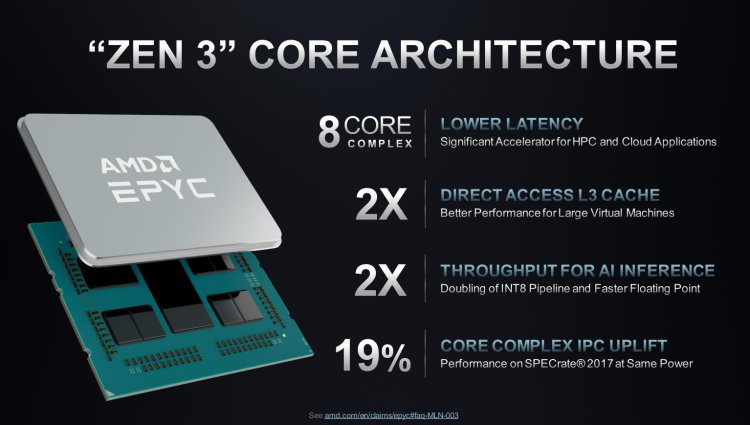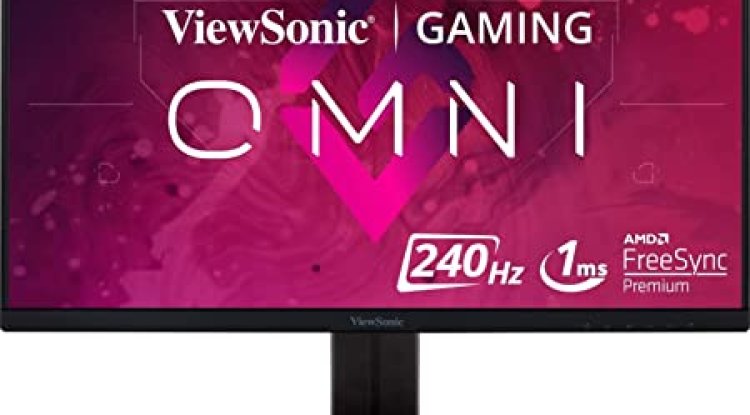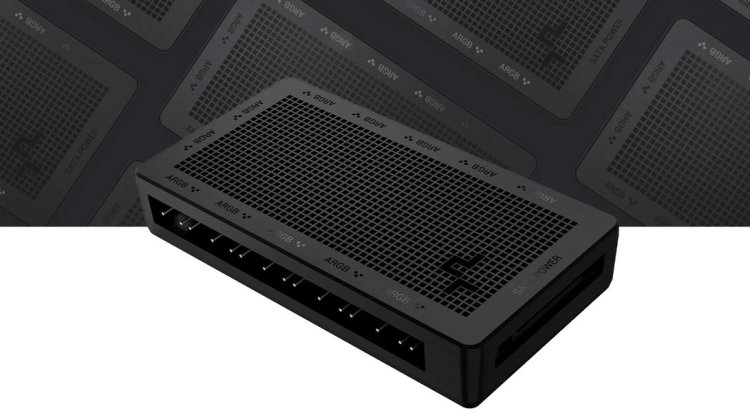AMD EPYC 7003 'Milan' Series: Extended Lifecycle and New SKUs
AMD has recently announced an extension to the product lifecycle of their EPYC 7003 “Milan” series of server CPUs. Originally launched in 2021, these processors will now be available until at least 2026. Alongside this extension, AMD is introducing six additional SKUs, effectively repositioning the Milan series as a budget-friendly option in the server market.

Background of EPYC 7003 'Milan'
Zen 3 Architecture and Initial Launch
The EPYC 7003 series, based on AMD's Zen 3 architecture, was initially released with a focus on high performance, featuring up to 64 CPU cores, support for 8 channels of DDR4 memory, and PCIe 4.0 connectivity. This platform provided a significant advancement in server technology, catering to the high demands of modern data centers.
Competition and Current Market Position
Since its launch, the Milan series has been succeeded by AMD’s Zen 4-based EPYC server platforms – Genoa, Bergamo, and Siena. However, for continuity and support reasons, AMD continues to offer the Milan series to its customers, now extending its availability as a budget-friendly alternative.
The Extension of Milan's Lifecycle
Extended Availability to 2026
AMD’s decision to extend the Milan series’ availability to 2026 reflects the company’s commitment to providing long-term solutions to its customers. This move caters to businesses needing a proven and reliable platform while gradually transitioning to newer generations.
Target Market and Customer Needs
The extended lifecycle of the Milan series is particularly appealing to businesses operating on the trailing edge of server technology. It offers a cost-effective solution for those requiring system upgrades without immediately moving to the latest 4th generation EPYC or Intel's Xeon Scalable platforms.
New SKUs: Enhancing the Milan Portfolio
Introduction of Six New Models
In reinforcing its commitment to the Milan series, AMD has launched six new SKUs. These new models range from high-core-count processors to ultra-budget server chips, providing various options to meet different market needs.
Specifications and Pricing
The new SKUs include the 56-core 7663P and the 48-core 7643P, positioned as lower-priced, single-processor versions of existing Milan models. The lineup also introduces the 7303 and 7203 parts, offering more budget-conscious options with 16 and 8 cores, respectively. The pricing for these models varies, accommodating different budget ranges and making the Milan series more accessible to a wider array of customers.
Impact on the Server Market
Milan as a Budget Server Platform
By extending the life of the Milan series and introducing new SKUs, AMD strategically positions these processors as a budget option in the server market. This move allows AMD to cater to a segment of the market that requires reliable performance at a more affordable price point.
Competition with Intel Xeon Scalable
AMD's strategy with the Milan series directly competes with Intel’s Xeon Scalable processors, targeting customers who are looking to replace aging servers but are hesitant to invest in the latest generation. This positions the Milan series as a viable alternative for cost-conscious customers.
Technical Analysis of New Milan SKUs
Core and Thread Counts
The new SKUs bring a mix of core and thread counts, ranging from 56 cores in the 7663P to 8 cores in the 7203/7203P. This variety ensures that AMD can address a broad spectrum of server requirements, from high-performance computing to entry-level server tasks.
Clock Frequencies and Power Efficiency
With varying base and turbo frequencies, these processors are designed to balance performance with power efficiency. The higher-core-count models offer robust performance for demanding applications, while the lower-core-count chips are ideal for less intensive tasks, providing a power-efficient solution.
Also Check ADATA HD770G RGB 2TB Red External USB 3.1 External Hard Drive
Memory and I/O Capabilities
Despite their positioning as budget options, all the new Milan SKUs maintain full I/O and memory channel support inherent to the Milan/SP3 platform. This feature ensures that even the budget models do not compromise on essential server functionalities.
Future Outlook for AMD’s Server Line
Continuity and Support for Milan Series
AMD's commitment to the Milan series through 2026 assures customers of ongoing support and availability. This decision aids businesses in planning their IT infrastructure upgrades with a clearer understanding of the product lifecycle.
Transition to Newer AMD Platforms
While offering the Milan series as a budget option, AMD continues to develop and promote its Zen 4-based EPYC platforms. This dual approach allows AMD to cater to a broader market segment, accommodating customers at different stages of technology adoption.
Conclusion: AMD’s Strategic Positioning in the Server Market
Balancing Performance and Budget
AMD's extended lifecycle and introduction of new SKUs for the EPYC 7003 'Milan' series represent a strategic move to balance performance needs with budget constraints in the server market. By offering a range of options from high-core-count processors to entry-level chips, AMD caters to a diverse set of customer requirements.
Competing in a Dynamic Market
The Milan series stands as a competitive option against Intel’s offerings, providing a viable alternative for customers looking for cost-effective upgrades. AMD's decision to extend the life of the Milan series and introduce new models underscores its commitment to serving a broad customer base in a rapidly evolving server market.





































